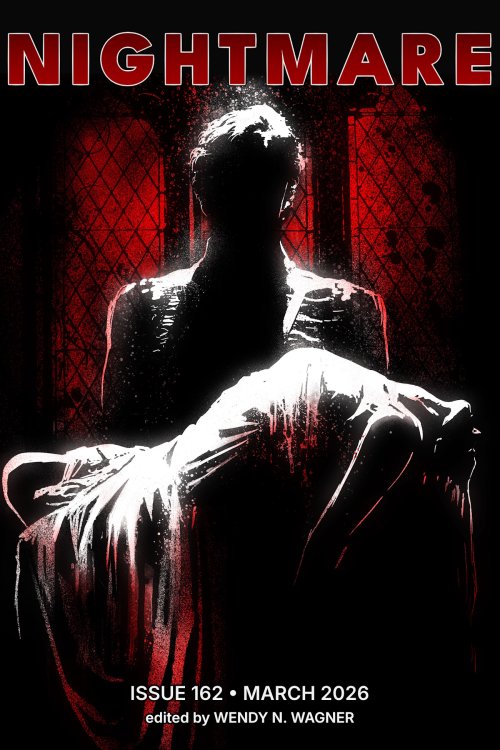Content warnings:
substance use, psychosis, emotional abuse
Narcissism!
Gaslighting!
Madness, oh my!
The Stradivarius is my love-letter retelling of Patrick Hamilton’s Gas Light, yes, but it’s also another in a long line of attempts to process my experience with the abuse that would come to define an era of my life. Today, I see “gaslighting” thrown around casually, usually as a high-powered stand-in word for “lying.” But as Mae and Carter—the main characters of The Stradivarius—or as I, or anyone else who’s experienced this type of abuse can tell you, it’s something far more devastating and complex.
My Carter became too big to view objectively. His name wasn’t really Carter, of course, but it was close enough, and after boring five therapists with my Carter stories, no closer to feeling healed, I decided to shrink us both down to a digestible size. Put us both in an aquarium of my making and watch with some perspective how it happened—why it happened the way it did.
So, I boiled it down to the basics: Young, naive woman happily fawns over a charismatic, older man, thrilled to be in his orbit. He’s great. He’s funny, charming, attractive. He promises the world. She can’t believe her luck, until:
Something’s off.
I don’t remember it that way.
But why would he lie?
Maybe I smoked too much. I am feeling tired.
Oh good, he’s back! Everything’s fine. Everything’s great!
Huh?
When?
Didn’t he . . . didn’t I? No.
Okay, okay. There it is.
And the cycle continues: And he loves me. And he doesn’t. And I made it up. And I’m obsessed. And I’m crazy. And he loves me. And I made it up. And I made it up that he loves me.
Emotional abuse is exhausting to explain and was even harder to understand in 2008 before “gaslighting” became part of the common vernacular. I grappled with how to empathetically portray Mae while I still struggled to empathize with myself.
It couldn’t have been that bad. Could it? I still wonder if I’m misremembering . . .
There were definitely internet searches. Keywords like:
“How to tell someone if loves you.”
“Laughs when I cry.”
“Won’t call me his girlfriend.”
“Boyfriend says things didn’t happen.”
“How to tell if losing mind.”
And finally,
“How to hurt a narcissist.”
I scrolled through years-old message board posts to find others like me and found lots of advice on how to leave. Cut off all communication. That was the big one. But I didn’t want to leave. I wanted to find a way to make him love me—all the time. Not just when he felt like it (see, when it served him). This is a unique kind of pain, loving someone who loves you too, but only sometimes. It festers like a wound that can’t heal, itches so you can’t leave it be, keep raking it over with your fingernails until it oozes that same blood and pus.
I’d love to pretend I worked up the self-respect to walk away, but that’s not how it happened. The truth is: he got bored with me. And after that, the story of the drugs began in earnest.
I used.
We used.
He moved away.
I used to remember him. I used to forget.
Then I used because I didn’t know how not to. And one day I’d used so much and slept so little, shadowy figures surrounded my house. I watched them through the windows and the sliding glass door in a sweaty panic. They lurked in the bushes, behind the fence, in the crawlspace. I snapped a hundred pictures, but they were too fast; I couldn’t catch them. Barefoot, I warned the neighbors, brandishing kitchen knives for protection.
The police wouldn’t help. I called them four times. “There’s no one there,” the cop said after his third trip around the yard. Another man, same message. It’s all in your head.
What I didn’t realize while picking thorns out of my feet in a hospital gown, but realize now, is that this guy was actually right. I’d slipped into a substance-induced psychosis. It was all in my head. I didn’t believe the doctors when they told me as much at the hospital. Just like I didn’t believe the rehab’s admission counselors when they told me I needed help.
“You tested positive for everything.”
“Are you impressed?” I gave them my best smirk.
If you’re on the fence about laughing at that joke: permission granted.
Fast forward a decade. I’ve celebrated ten years in recovery and have leveraged the tough times—what I like to call my blue period—into a career helping those with issues like mine. I’ve worked with hundreds of people: from those with substance issues to those living with unusual experiences, seeing and hearing things that others can’t. I find that because of my demons (both real and imagined), I connect with them in a way that others don’t or won’t. At this point, by all outside accounts, I’m well-adjusted, a success story. Yet still my Carter shows up in my dreams. And still, I’m thrilled just to be in his orbit. The therapists are stumped (see, also bored). Truthfully, I’m bored too. So, I started writing.
I didn’t set out to mirror my experiences in The Stradivarius; the throughline of gaslighting to psychosis happened subconsciously—I think as part of a healing process. Upon reflection, there are a few running themes in my work: a narcissist, a woman bewitched, isolation, unstable reality, feminine rage, a thirst for retribution. Each story is a miniature, contained reality. I get to think about character flaws and emotional arcs, about lessons and redemption, while keeping myself (and my judgement of myself) at arm’s length. On the page, I indulge in obsession. I openly express rage. I don’t need to think about real or not real, reasonable or not, whether it happened or I’m making it up. It’s all real and I made it all up.
Again and again, I’ve waltzed into exploring the dynamic between a woman and her narcissistic paramour, tweaking their attributes from naivety to murderous infatuation, from cavalier to sadistic. I joke that I’m often three-quarters of the way through a piece before I realize it’s the same trauma, shape-shifted—a new setting, new plot, new character names, but same old damage.
Through my characters, I present exaggerated horrors. Gore and spirits are easier to identify than a vague notion that something’s not right, the million razor-sharp gestures that dig invisible trenches. My story becomes their stories, and when the fictionalized embodiments of my pain win, I offer my younger self a little empathy. When readers see the main character of my novel as screwing up but doing her young-dumb best, it’s an edification of my own choices. I receive a quiet message that only I can translate—it wasn’t your fault.
Through The Stradivarius, I offer myself forgiveness. Tornado-shaped abuse might’ve thrown me off course, landing somewhere I didn’t recognize, somewhere dangerous and strange. But if it hadn’t, I wouldn’t have had the opportunity to help the folks I found there. And, it turned out, the ability to forgive myself wasn’t something anyone else could give me anyway.
It was something I created. And it was real.









